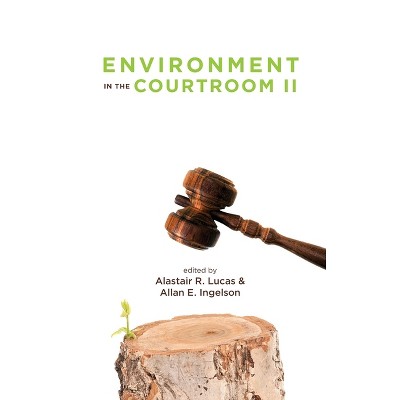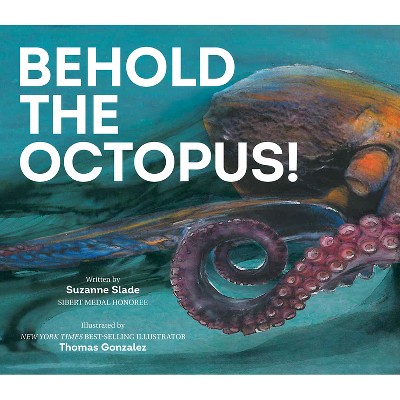Sponsored

Behold the Black Caiman - by Lucas Bessire (Paperback)
$30.00
In Stock
Eligible for registries and wish lists
Sponsored
About this item
Highlights
- In 2004, one of the world's last bands of voluntarily isolated nomads left behind their ancestral life in the dwindling thorn forests of northern Paraguay, fleeing ranchers' bulldozers.
- About the Author: Lucas Bessire is assistant professor of anthropology at the University of Oklahoma.
- 296 Pages
- Social Science, Anthropology
Description
About the Book
"Behold the Black Caiman "by anthropologist Lucas Bessire is a haunting ethnography based on a decade of fieldwork among a group of Ayoreo-speaking tribes in the Gran Chaco, the largest forested area in South America after the Amazon. Bessire shows that, far from being untouched noble savages, most of the Ayoreo tribes are struggling to survive on the margins of industrialized society as cattle ranches encroach on the dense wilderness that they once called home. As one of the poorest and most marginalized indigenous groups in the region, the Ayoreo endure unfathomable levels of violence and discrimination. Faced with such brutality, the Ayoreo believe that survival within modernity requires a radical transformation, including the abandonment of nearly all of the practices that count as authorized native culture in Latin America. Bessire argues that their attitude is not evidence of contamination or loss--as many anthropologists, NGOs, and state representatives would have it--but is rather a profound moral response to their desperate situation. The book thus aims to revise the anthropology and history of Ayoreo-speaking people, and indigenous people in general, who have long been seen as the ultimate primitives outside the State, market, and history. Written in the tradition of classic texts such as"Chronicle of the Guayaki Indians"and"Tristes Tropiques," the book tells a tragic story of catastrophic violence that is urgently relevant to identity politics both within Latin America and beyond."Book Synopsis
In 2004, one of the world's last bands of voluntarily isolated nomads left behind their ancestral life in the dwindling thorn forests of northern Paraguay, fleeing ranchers' bulldozers. Behold the Black Caiman is Lucas Bessire's intimate chronicle of the journey of this small group of Ayoreo people, the terrifying new world they now face, and the precarious lives they are piecing together against the backdrop of soul-collecting missionaries, humanitarian NGOs, late liberal economic policies, and the highest deforestation rate in the world. Drawing on ten years of fieldwork, Bessire highlights the stark disconnect between the desperate conditions of Ayoreo life for those out of the forest and the well-funded global efforts to preserve those Ayoreo still living in it. By showing how this disconnect reverberates within Ayoreo bodies and minds, his reflexive account takes aim at the devastating consequences of our society's continued obsession with the primitive and raises important questions about anthropology's potent capacity to further or impede indigenous struggles for sovereignty. The result is a timely update to the classic literary ethnographies of South America, a sustained critique of the so-called ontological turn--one of anthropology's hottest trends--and, above all, an urgent call for scholars and activists alike to rethink their notions of difference.Review Quotes
"Behold the Black Caiman wrestles with the complexity of life and the ways in which it can be both dehumanized and endured. The book's innovative, elegiac style is not merely an aesthetic device, but rather a provocation. Bessire is asking us, as readers, to think with him."-- "Cultural Anthropology"
"Bessire presents the reader with a plethora of unruly images and evocative vignettes of Ayoreo life which never surrender to a single, univocal narrative. His account is purposefully complex. In a world where sensationalized images of the "last contacted Indians" are regularly consumed to satiate our hunger for otherness, and in an academy where indigenous ways of life are increasingly emphasized as the only true political alternative to our world, Bessire's book is a much-needed different voice."
-- "Times Literary Supplement"
"This is an exceptional book whose compelling narrative fully immerses the reader in the social and spatial geography of the northern Gran Chaco. The book's greatest strength is Bessire's careful conceptual and ethnographic decomposition of the terms that have long been used to dehumanize the Ayoreo people in popular and scholarly imaginings. Original and unsettling, this ethnography shows that the anthropological deconstructions of conventional notions of 'culture' and 'indigeneity' haven't gone too far--in fact, they haven't gone far enough."--Gastón Gordillo, author of Rubble: The Afterlife of Destruction
"In a time when anthropologists proclaim an 'ontological turn' based on the study of cosmologies and mythologies, proposing a representation of Amerindians as radical others living in ahistorical temporality, Bessire resists what he calls the 'fetishization of tradition' by offering a beautifully written ethnography of the pauperized and marginalized Ayoreo people, who are caught between the forest and the bulldozers that destroy it, between the proselytism of millenarian religions and the benevolence of humanitarian organizations. Behold the Black Caiman is an important and courageous book, which will be a source of inspiration for all social scientists interested in the contradictions of the contemporary world."--Didier Fassin, Institute for Advanced Study
"Wonderfully sensitive to its own presuppositions about anthropology no less than the giddy claims made for 'Amerindian cosmology' and the so-called ontological turn, Bessire's chronicle of the Ayoreo of Paraguay and Bolivia is breathtaking in its power and delicacy. His chronicle takes us into the depths of suffering, not to resurrect the primitive or the travail of genocide, but so as to more honestly address what he sees as deep-seated 'zones of intense translation' that override the hoopla of Western attachment to the indigene as bound to tradition. A profoundly iconoclastic book that will become one of the great classics of social thought, it leaves the reader in a remarkably new place for rethinking modern history, no less than thinking itself."--Michael Taussig, Columbia University
About the Author
Lucas Bessire is assistant professor of anthropology at the University of Oklahoma. He is the producer and director of the documentary film From Honey to Ashes.Dimensions (Overall): 8.9 Inches (H) x 6.0 Inches (W) x .9 Inches (D)
Weight: 1.0 Pounds
Suggested Age: 22 Years and Up
Number of Pages: 296
Genre: Social Science
Sub-Genre: Anthropology
Publisher: University of Chicago Press
Theme: Cultural & Social
Format: Paperback
Author: Lucas Bessire
Language: English
Street Date: October 24, 2014
TCIN: 1006093061
UPC: 9780226175577
Item Number (DPCI): 247-32-1503
Origin: Made in the USA or Imported
If the item details aren’t accurate or complete, we want to know about it.
Shipping details
Estimated ship dimensions: 0.9 inches length x 6 inches width x 8.9 inches height
Estimated ship weight: 1 pounds
We regret that this item cannot be shipped to PO Boxes.
This item cannot be shipped to the following locations: American Samoa (see also separate entry under AS), Guam (see also separate entry under GU), Northern Mariana Islands, Puerto Rico (see also separate entry under PR), United States Minor Outlying Islands, Virgin Islands, U.S., APO/FPO
Return details
This item can be returned to any Target store or Target.com.
This item must be returned within 90 days of the date it was purchased in store, shipped, delivered by a Shipt shopper, or made ready for pickup.
See the return policy for complete information.
Frequently bought together

$8.99
Buy 2, get 1 free select books, music & movies
5 out of 5 stars with 1 ratings
Trending Non-Fiction

$19.31
was $20.98 New lower price
Buy 2, get 1 free select books, music & movies
4 out of 5 stars with 59 ratings

$19.58
MSRP $29.00
Buy 2, get 1 free select books, music & movies
4.6 out of 5 stars with 13 ratings

$4.59
MSRP $7.99
Buy 2, get 1 free select books, music & movies
4.8 out of 5 stars with 120 ratings

$6.20
MSRP $10.95
Buy 2, get 1 free select books, music & movies
4.8 out of 5 stars with 33 ratings

$7.09
MSRP $9.99
Buy 2, get 1 free select books, music & movies
4.9 out of 5 stars with 46 ratings

Highly rated
$12.54
MSRP $22.00
Buy 2, get 1 free select books, music & movies
4.7 out of 5 stars with 28 ratings










